I bet you’re here because you’ve been eyeing those kitchen scraps destined for the bin and thought, “There’s got to be a better way, right?”
Think about it. How often do you toss out peels and cooking scraps or those wilted vegetables or forgotten leftovers? Sometimes, food waste is unavoidable, but these everyday scraps add up.
Maybe you’ve been turned off composting in the past because you think it’s just for folks with sprawling backyards or big gardens.
Image via Subpod
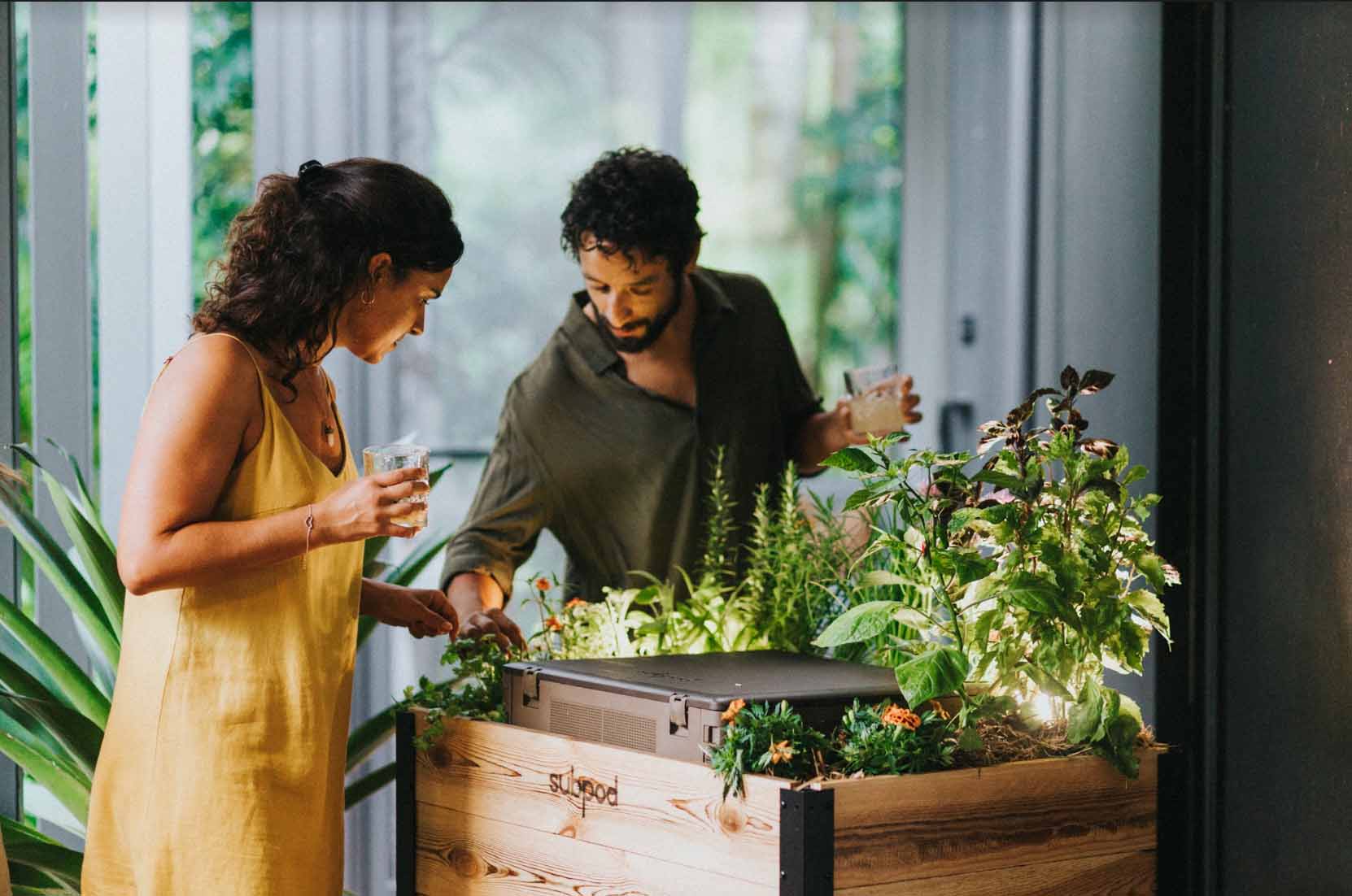
The misconception is that you need a tonne of space to compost. But the truth, no matter where you live, there is a compost bin or solution out there for you, you just need to find the right one.
But before we dig in, I want to bust some myths and shed some light on why composting is so important.
Sustainability, straight to your inbox
Monthly tips, stories, and inspiration to make living greener easy
First up, why should we compost?
Every peel, every scrap of food we throw away makes its way to landfill. Here’s where I need to mention, a landfill is not a giant compost.
In landfills, organic materials – our food waste – find themselves in a packed, oxygen-deprived environment. Without access to air, the food scraps can’t decompose as they would in nature or a compost pile. Instead, they break down anaerobically (without oxygen). This anaerobic decomposition produces methane, a greenhouse gas that is up to 34 times more potent than carbon dioxide.
Why does this matter?
Methane is a major contributor to global warming, trapping heat in the atmosphere. The more organic waste we send to landfills, the more methane we contribute to the atmosphere. It’s a vicious cycle – our food waste not only takes up precious landfill space but also exacerbates climate change.
Composting allows the organic waste to decompose aerobically (with oxygen) to help facilitate the decaying process, which means little to no methane.
This process also encourages the growth of friendly microbes that capture carbon from the atmosphere and lock it away in the soil. So when we compost food scraps, we’re not just avoiding harmful methane emissions from landfills, we’re actively pulling carbon out of the air.
Then there’s the added bonus of turning everyday waste into a valuable resource.
Packed with beneficial microorganisms, compost kicks life into even the sleepiest of soils. It’s a nutrient powerhouse for your garden, boosting plant growth as well as helping the earth hold onto water like a sponge. This is especially beneficial in Australia during our dryer months.
Now we’re looking at our food waste as a resource. The scraps become compost, which improves soil quality and, in turn boosts food production. Then the cycle begins again, returning nutrients back to the earth, fostering a more sustainable cycle of consumption and renewal.
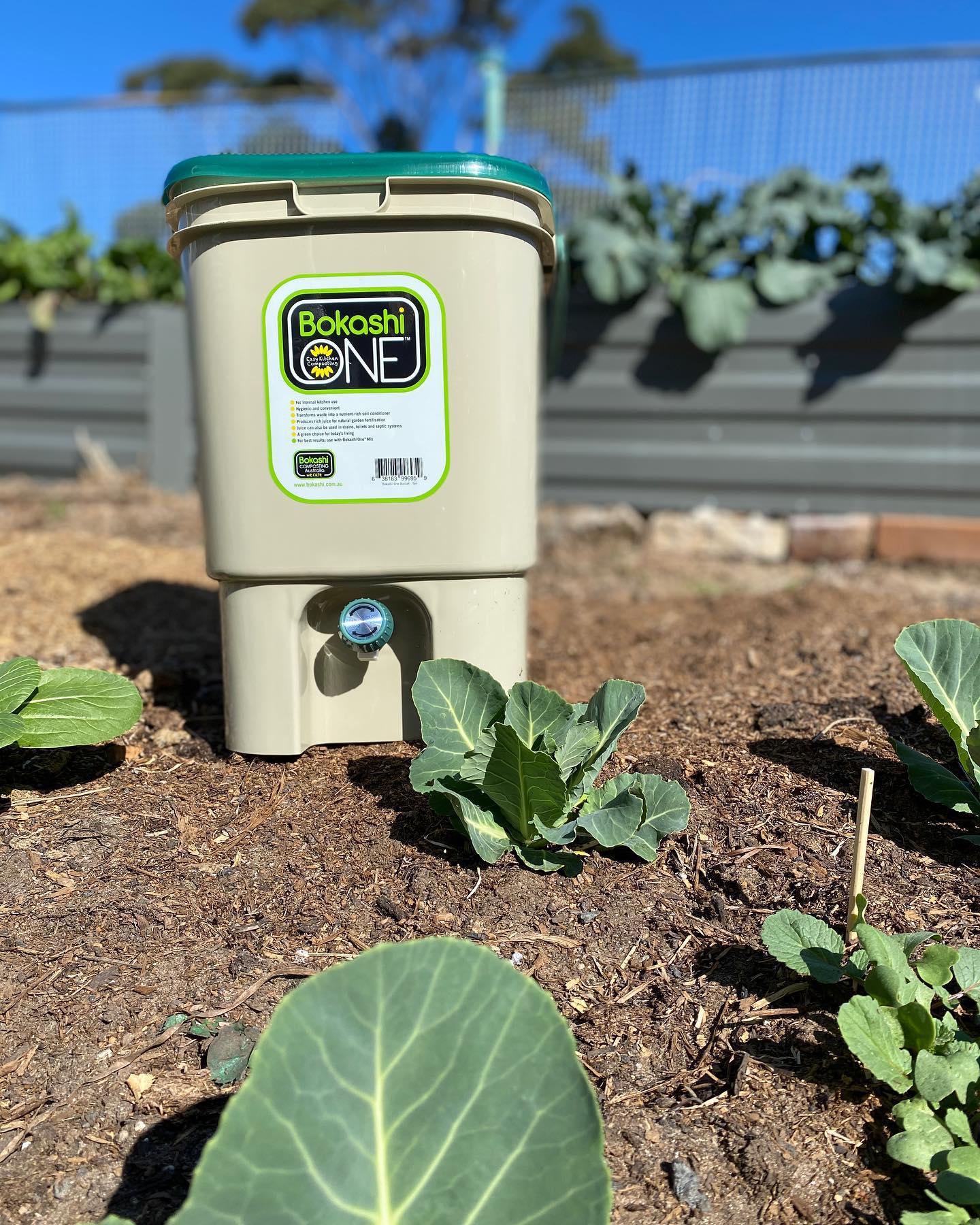
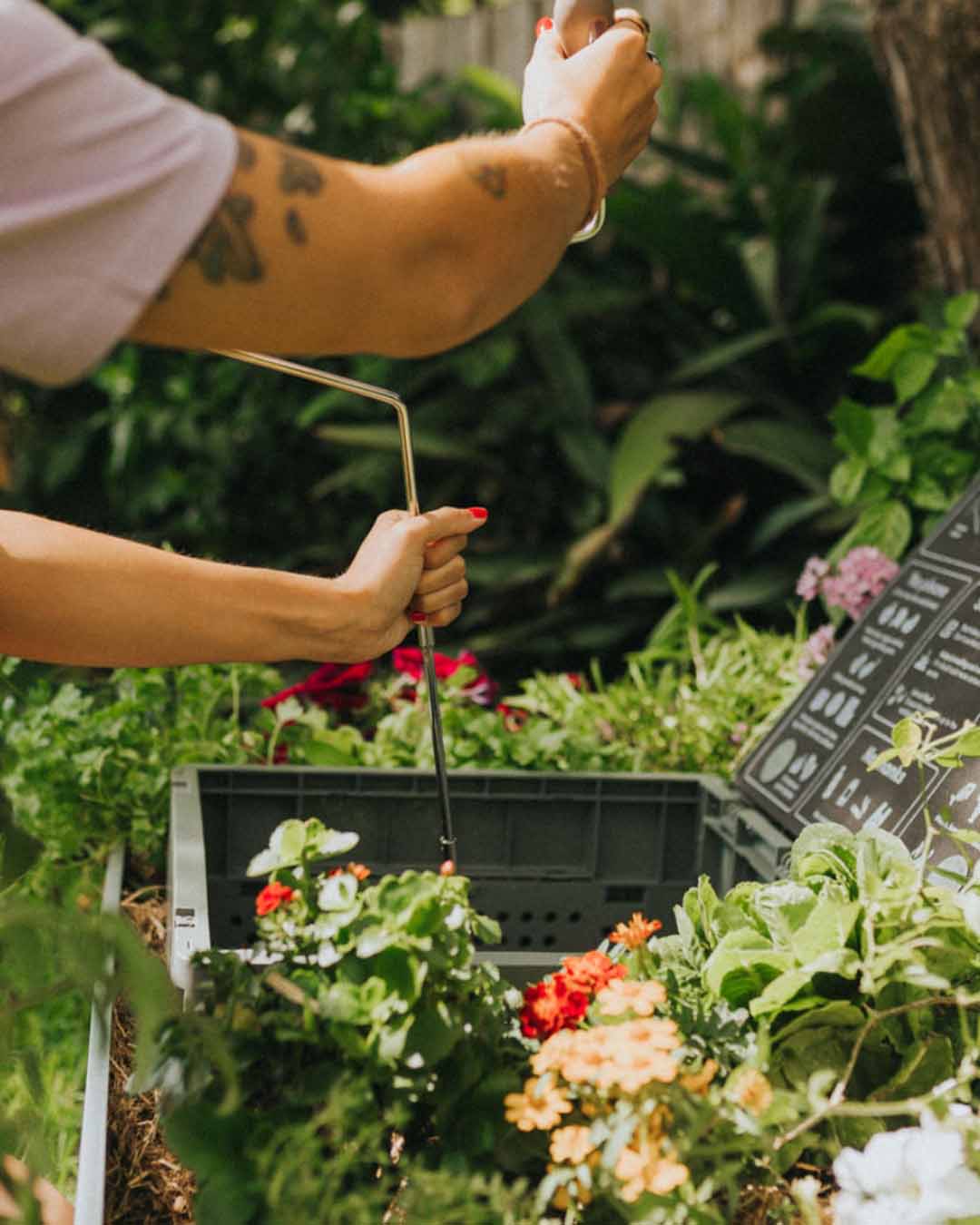
The composting solutions
The beauty of composting is its flexibility. You don’t need to be a gardening expert or have a sprawling backyard. What matters is finding the right compost solution that works for you and your space. Coupled with the commitment to making a small change in your daily habits.
Worm Farm – For Apartment Dwellers
The worm farm is the compact for indoor composting. Perfect for small spaces and balconies, the worm farm is a great way to compost in small spaces without any odour issues.
It works by turning your kitchen leftovers into worm castings – basically, black gold for your indoor plants. It’s like having a mini ecosystem right in your apartment.
Bokashi Bin – The Urban Solution
The Bokashi bin is the ninja of composting. A compact, airtight container that ferments your food scraps with zero fuss.
Ideal for urban spaces and apartments with little space for composting. It works by fermenting kitchen waste, including items typically not compostable in traditional bins like meat and dairy, using a special Bokashi microbe spray. Once the bin is full, the contents can be buried in a garden or a large planter to complete the composting process.
Subpod – The Gardeners Friend
The Subpod is like the secret agent of compost bins, hiding in plain sight in your garden. This in-ground warrior does its job discreetly, composting your scraps and feeding your plants simultaneously.
It gets installed directly in the ground or in a raised garden bed, allowing worms and microbes to move freely between the compost and the surrounding soil. They also offer mini portable options. This system not only composts your kitchen scraps but also enriches the soil around it, making it an excellent choice for those with a garden space who are serious about both composting and gardening.
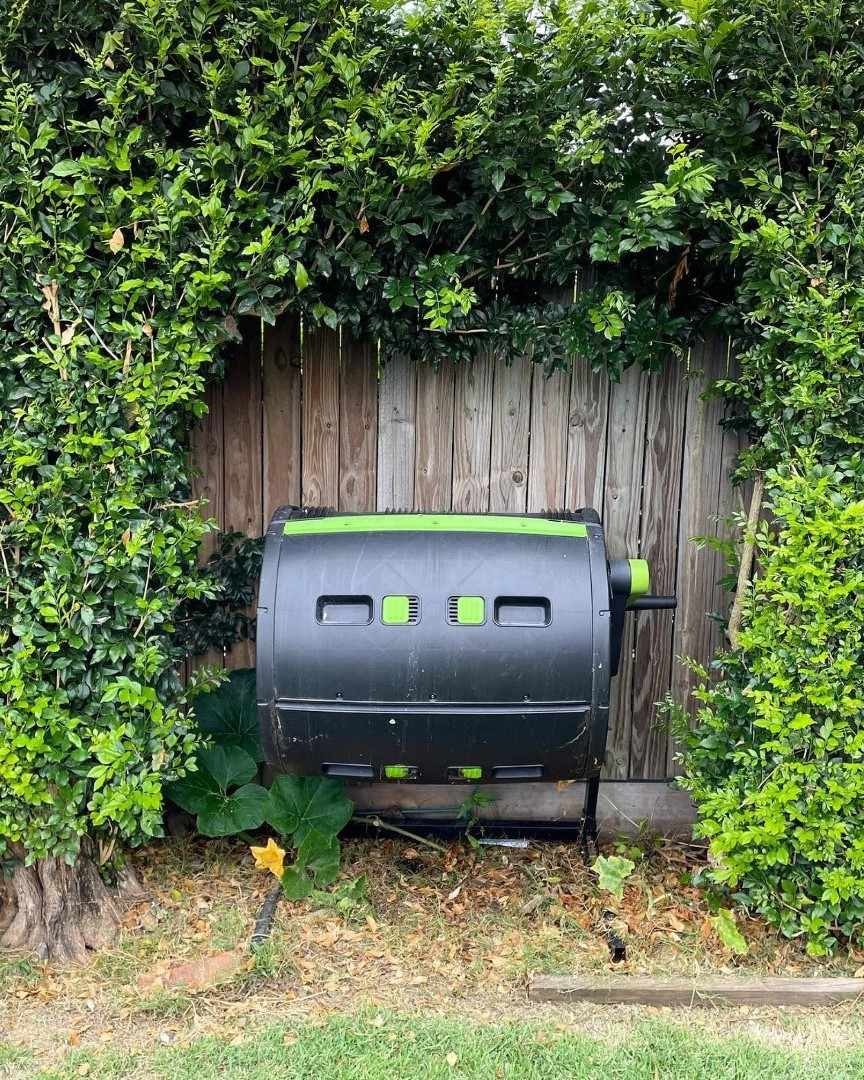
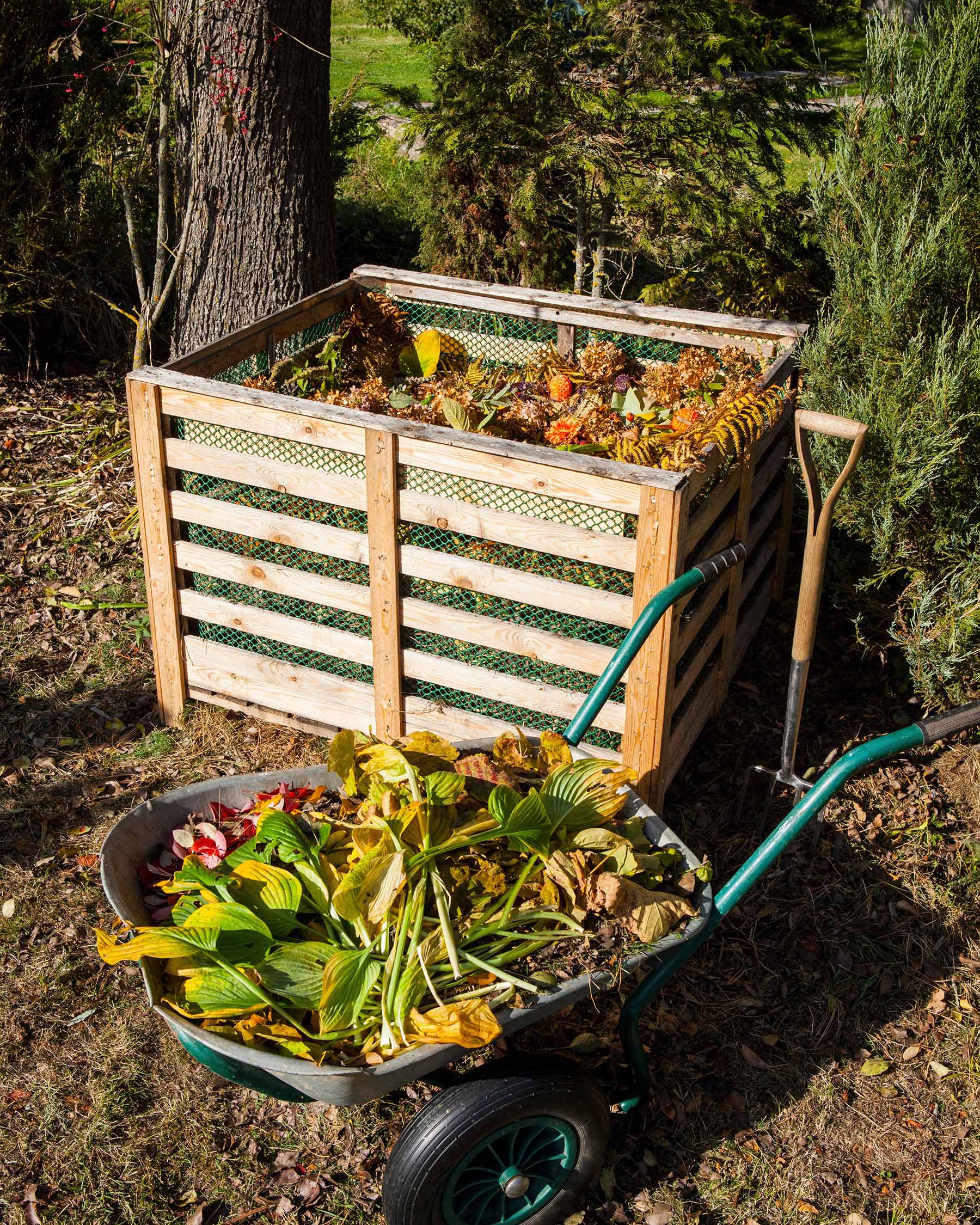
Maze Barrel Compost – A Portable Option
If you’re ready to step up your composting game, the barrel compost bin is perfect for those with a little more room to spare. This backyard beauty keeps things tidy and pest-free.
Plus, if you’re renting, it’s portable so it can move with you. Its rotating design makes it easy to mix and aerate the compost, speeding up the decomposition process. This type of bin is ideal for medium-sized gardens and for people who have a larger household and more food waste to compost.
In-Ground Composting – DIY’er With a Backyard
If you have the space and you’re ready to level up, you can DIY your in-ground composting system or hot compost and make it as small or as large as you need.
Or simply dig a trench or a hole in your garden, add your organic waste, and let nature do the rest. This type of compost is well-suited for larger yards where you can dedicate a small area to composting.
No Space for a Compost? Meet ShareWaste
This free, community-driven network, Australia-wide, connects people who have organic waste with neighbours who have compost bins.
It’s as simple as checking out their interactive map to find a nearby composting enthusiast who’d be delighted to take your scraps off your hands. ShareWaste also works the other way if you’re a composter who needs organic materials. Plus, it’s a great way to foster community connections, turning your waste into an opportunity to meet and help your neighbours.
Kitchen Compost Caddy
In addition to your outdoor composting, the compost caddy is your kitchen bench companion, perfect for collecting those daily scraps before they head off to the big leagues of composting.
Your local council
Finally, it’s worth checking out your local council to see if they offer a kerbside organic waste collection. Some councils have partnered with Compost Revolution, an initiative that provides residents with subsidized compost bins and worm farms.


